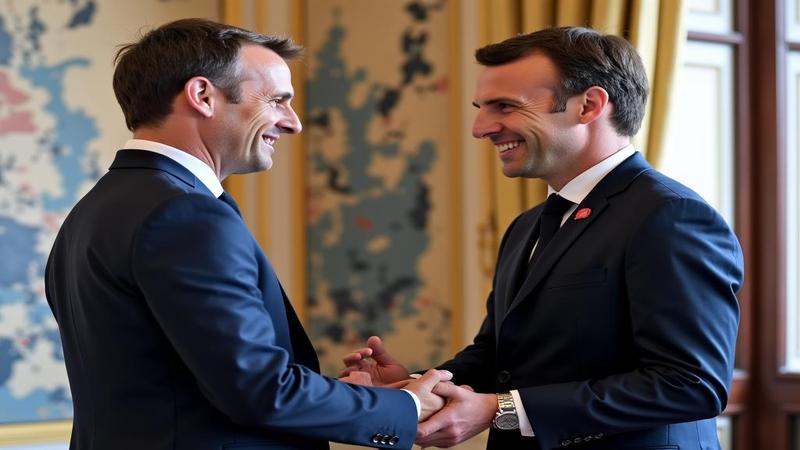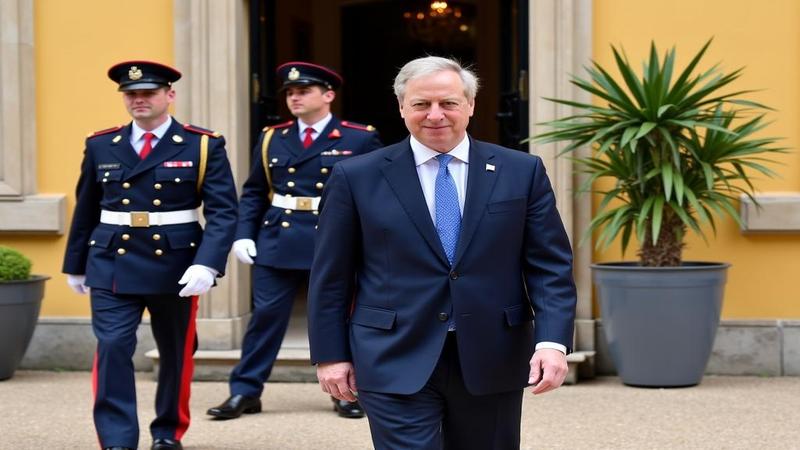Macron Appoints Lecornu Prime Minister, Republic Updates Its GPS

Emmanuel Macron named Sébastien Lecornu France’s next prime minister, and somewhere the Republic’s translation app simply typed “[Gallic shrug].” Paris exhaled, then immediately inhaled to argue about the exhale, the air rights, and the concept of lungs in a modern economy.
The announcement rolled down the tarmac of French politics, wheels up, tray tables locked, irony at cruising altitude. In the departure lounge, a rolling suitcase clacked in iambic pentameter while protocols lined up for their badge photos like schoolchildren on picture day.
Lecornu, until recently tending France’s armed forces, is the minister one calls when policy needs a convoy and diplomacy needs a torque wrench. He can move a battalion, a budget, and—given three signatures and a saint—your aunt’s printer.
Macron praised him as steady, loyal, and fully compatible with existing chargers, including legacy adapters from the Fourth Republic. The ceremony felt like a software patch: security update, minor bug fixes, and that eternal promise of battery life that never, ever, ever arrives.
France’s semi-presidential contraption now attempts a delicate soufflé in a hurricane wearing a beret. The National Assembly remains a zebra crossing where ideas look left, look right, and sprint anyway because a horn beeped in Voltaire.
Lecornu arrived at Matignon carrying a ministerial-grade conference earpiece, which instantly tried to pair with the Fifth Republic and accidentally downloaded a three-part documentary on strikes narrated by an angry accordion.

He vowed seriousness, continuity, and reforms that would show up on time, give or take several centuries of precedent and a lunch break described by UNESCO as “intangible heritage.” The unions marked his note as unread and forwarded it to Friday, where all schedules go to confess.
The left said the choice was predictable; the right said the choice was predictable; the center held a press conference to announce that predictability is the new audacity. Pollsters reported a statistical tie between the national shrug and the theatrical eye-roll, with a late surge from the philosophically raised eyebrow.
Abroad, European partners greeted the news like a familiar ringtone at a summit where the Wi‑Fi keeps making you accept cookies made of regulations. NATO nodded in fluent acronym, which translates loosely to “Please keep labeling your missiles and your spreadsheets.”
Meanwhile, the Élysée gift shop stocked a commemorative executive crisis briefcase in three soothing shades: deficit, deficit-light, and classic deficit noir. It comes preloaded with resignation letters, reusable announcements, and a pocket for the budget’s feelings.
In cafés, citizens debated whether this moves the needle or simply polishes the gauge with a cloth woven from think pieces. A man in Lyon promised to judge policies by their aroma; a woman in Lille pledged support for anything that doesn’t schedule her train for yesterday.
France, ever composed, updated its GPS: recalculating, continue straight, negotiate 27 roundabouts and one immortal paradox about centralization. At destination, please present your ticket, your receipts, and your callback-ready shrug—preferably charged with a compatible prime minister.
